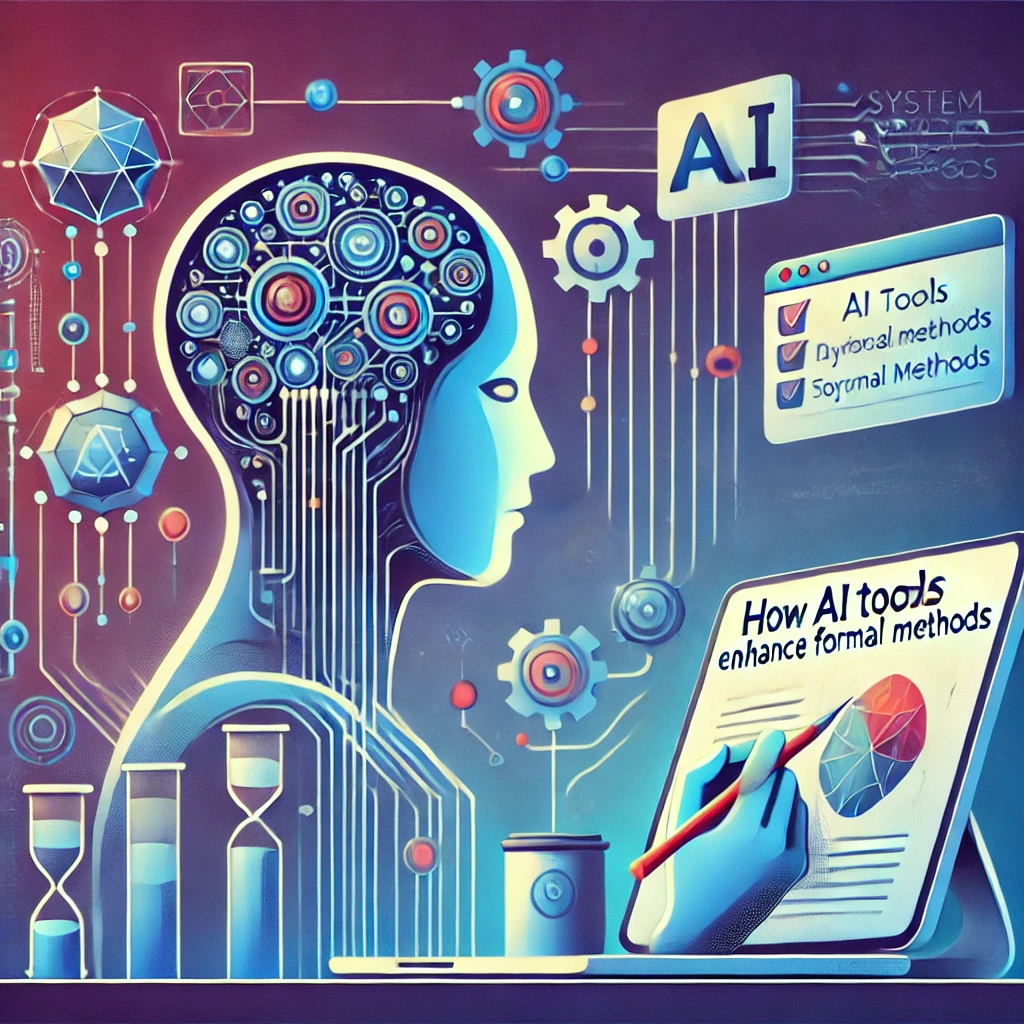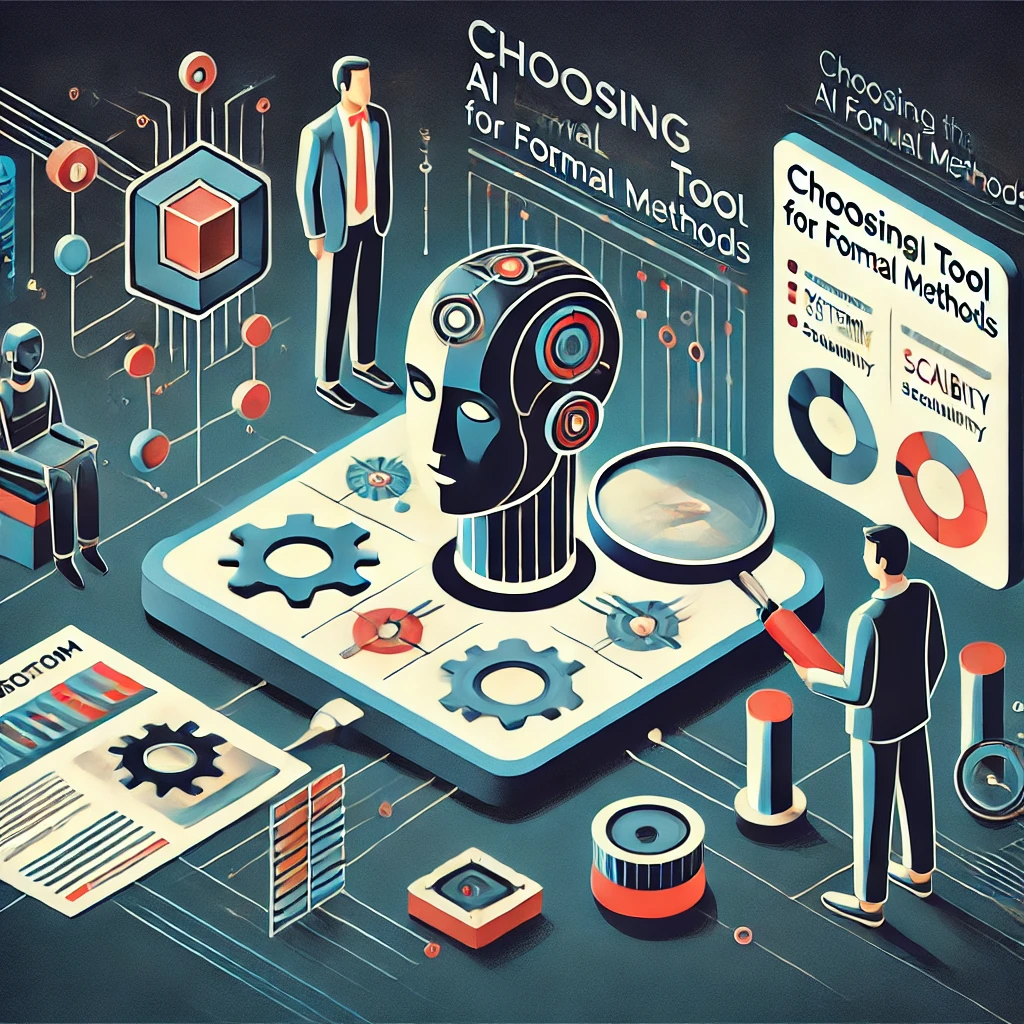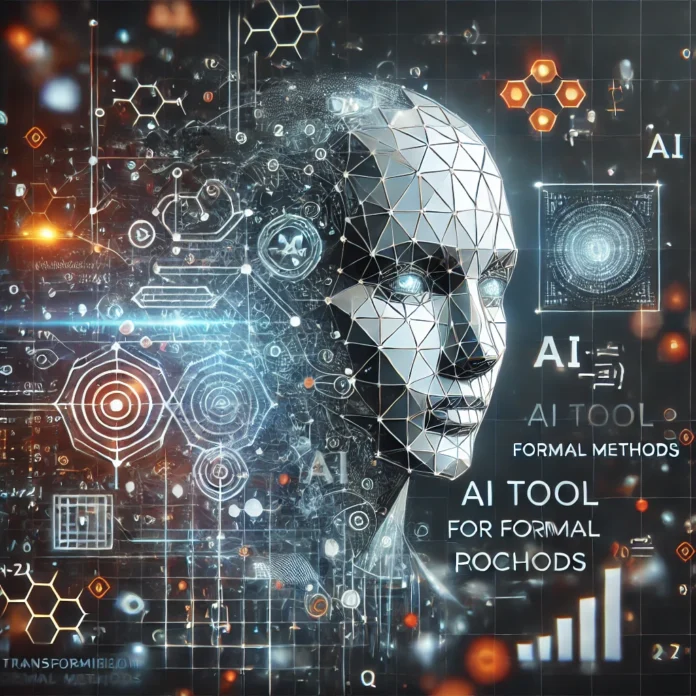Artificial intelligence (AI) is changing various domains, and one area where it is making important steps is in proper methods. AI tool for formal methods updates confirmation, authentication, and the design of complex systems. By combining advanced procedures with difficult mathematical models, these tools provide matchless accuracy and productivity. This article find how AI is transforming formal methods and why it is a game-changer for serious industries.
Understanding Formal Methods and Their Importance
Formal methods are mathematical methods used to specify, develop, and verify systems. They play a serious role in confirming the dependability and correctness of software and hardware, particularly in safety-critical domains like atmosphere, automotive, and healthcare. Traditional formal methods often need important skill and time, making them a challenge for general acceptance.
The Integration of AI in Formal Methods
AI tools address these challenges by powering complex tasks, decreasing physical management, and boosting the verification process. Machine learning models, for example, can identify patterns in system behaviors and expect possible issues, pointedly improving the efficiency of traditional formal methods.
How AI Tools Enhance Formal Methods
AI-driven tools bring several advantages to formal methods. Here’s how they improve the verification and design process:

- Automated Theorem Proving:
AI procedures can solve difficult proofs that would otherwise need more human effort, allowing quicker and more accurate results. - Model Checking:
These tools automatically verify system properties against specifications, identifying errors early in the design phase. - Simulation and Testing:
AI tools generate high-coverage test cases, confirming that systems are strong against a wide range of situations. - Natural Language Processing (NLP):
By understanding natural language requirements, AI tools help link the gap between human inputs and formal specifications.
Enhancing Accuracy with AI Algorithms
AI procedures’ ability to process large datasets and detect patterns confirms that even slight errors are identified and resolved, improving the dependability of serious systems.
Real-World Applications of AI Tools in Formal Methods
AI tools for formal methods are already proving their value across many industries:
- Aerospace:
Confirming flight software meets strict safety standards by verifying difficult procedures. - Automotive:
Improving the reliability of independent vehicle systems by identifying possible failures in real-time. - Healthcare:
Verifying medical device software to confirm agreement with regulatory standards.
Accelerating Innovation in Critical Systems
By reducing the time and expertise needed for formal verification, AI tools are boosting creation in industries that demand the highest levels of reliability and safety.
Challenges and Future Directions
While AI tools for formal methods give much potential, they are not without challenges. One main concern is the understandability of AI models. Confirming that AI decisions are transparent and explainable is important for trust and adoption. Additionally, mixing these tools with existing workflows can need important initial investment.
The Road Ahead
Despite these challenges, ongoing research and advancements in AI are confident to address these issues. Future developments may include mix models that combine the strengths of traditional formal methods with AI’s adaptability and scalability.
Choosing the Right AI Tool for Formal Methods
Selecting the right AI tool for formal methods depends on several factors:

- Compatibility:
Confirm the tool mixes smoothly with your existing systems. - Scalability:
The tool should handle difficult, large-scale systems efficiently. - Ease of Use:
User-friendly platforms and clear documentation increase accessibility for teams. - Cost:
Assess the tool’s features against its price to limit value for money.
Tailoring Solutions to Specific Needs
By understanding the unique requirements of your industry, you can choose AI tools that deliver maximum impact.
Conclusion
AI tool for formal methods is changing how difficult systems are designed, verified, and validated. By powering complex processes, improving accuracy, and improving efficiency, these tools are covering the way for safer, more reliable systems. As industries continue to accept these technologies, the future of formal methods looks hopeful, with AI at its main.
FAQs
Formal methods are mathematical techniques used to mention and verify the correctness of software and hardware systems.
AI powers tasks like theorem proving, model checking, and test case generation, improving accuracy and efficiency.
Industries like aerospace, automotive, and healthcare benefit by confirming the safety and reliability of difficult systems.
Modern tools are designed with user-friendly platforms and documentation to improve accessibility.
The future includes mix models, improved explainability, and wider adoption across industries to meet growing challenges.
Also Read: AI Tools for Appointment Setting Miami


